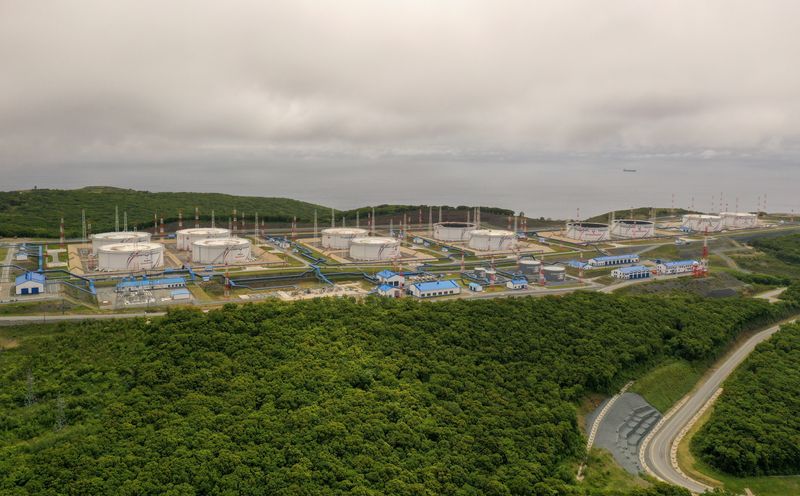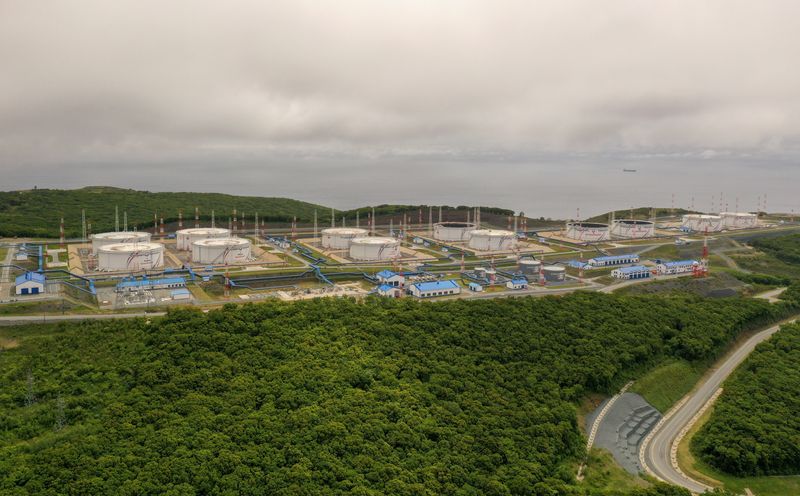
By Georgina McCartney
HOUSTON (Reuters) – Oil prices rose on Tuesday as traders eyed OPEC+ discussions on output and anticipated the potential impact of U.S. President-elect Donald Trump’s planned trade tariffs on Mexico and Canada.
Brent crude futures were up 42 cents, or 0.58%, at $73.43 a barrel as of 11:39 a.m. ET (1639 GMT). U.S. West Texas Intermediate crude futures were at $69.39 a barrel, up 45 cents, or 0.65%.
Both benchmarks briefly jumped more than $1 per barrel during the session.
“We popped and dropped around the time news came out of the resumption of OPEC talks,” said Phil Flynn, senior analyst at Price Futures Group.
OPEC+ nations are discussing a further delay to a planned oil output hike that was due to start in January, two sources from the producer group said, ahead of Sunday’s meeting to decide policy for the early months of 2025.
OPEC+ had planned to slowly roll back oil production cuts with small increases over many months in 2024 and 2025. But a slowdown in Chinese and global demand, and rising output outside the group, have put a damper on that plan.
OPEC+ members Iraq, Saudi Arabia and Russia agreed in a meeting on the importance of maintaining stable oil markets and fair prices, Iraq’s Prime Minister Office said.
Elsewhere, U.S. President-elect Donald Trump said he would impose a 25% tariff on all products coming into the U.S. from Mexico and Canada.
The vast majority of Canada’s 4 million bpd of crude exports go to the U.S. Analysts had said it would be unlikely Trump would impose tariffs on Canadian oil, which cannot be easily replaced since it differs from grades that the U.S. produces.
Monday’s tariffs announcement does not seem to be having an immediate impact on Canadian oil markets, market sources said on Tuesday.
Tuesday’s gains offset some of Monday’s selloff, when oil prices slid more than $2 following multiple reports that Israel and Lebanon had agreed to the terms of a ceasefire in the Israel-Hezbollah conflict.
“The main reason to believe crude oil could be pressured by the ceasefire, is the U.S. administration reducing sanctions on Iranian oil, who is a supporter of Hezbollah,” StoneX analyst, Alex Hodes said in a note on Tuesday.

Market reaction on Monday to the ceasefire news was overdone as the broader Middle East conflict has yet to significantly disrupt supplies this year, said senior market analyst Priyanka Sachdeva at Phillip Nova.
Despite the possibility of the imminent diplomatic breakthrough, hostilities raged as Israel dramatically ramped up its campaign of air strikes in Beirut and other parts of Lebanon on Tuesday.
This post is originally published on INVESTING.



